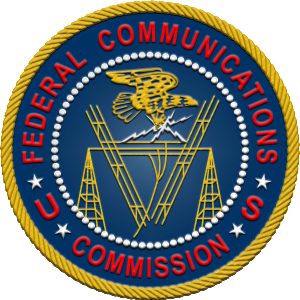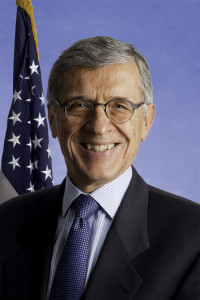 In a close three to two vote along party lines, the FCC announced new rules on Internet governance to support net neutrality and the open Internet, protecting freedom of innovation and access to web content.
In a close three to two vote along party lines, the FCC announced new rules on Internet governance to support net neutrality and the open Internet, protecting freedom of innovation and access to web content.
The new rules from the FCC, changed the way ISPs operate. The Internet has been re-classified as a utility. This means that all people have a right to the Internet. The new rules reflect the FCC’s re-classification of broadband as a Title II telecommunications service under the 1934 Communications Act.
ISPs are now subject to the privacy provisions of the Communications Act of 1934. This new rule requires your ISP to provide you with any information they collect and maintain on you, the customer, upon written request.
Net neutrality has also been extended to wireless devices such as smartphones. The decision prevents cell providers from throttling, or slowing down, the data stream to your mobile device. A common practice of many carriers when they believe you consume too much data.
The three key provisions of the Open Internet Order covers both fixed and mobile internet access;
- No blocking. ISPs cannot block access to legal content, apps, services or non-harmful devices;
- No throttling. ISPs are forbidden from impairing or otherwise degrading legal Internet traffic on the basis of such criteria as content, apps, services or non-harmful devices.
- No paid priority. ISPs are not allowed to charge for favored access of legal Internet traffic over other kinds in exchange for money. They are banned from giving their own content and services, and that of their affiliates, priority.
Internet service providers (ISPs), the companies that own the wires and antennas that transmit data, were seeking the right to charge Internet websites, content providers, and users based on how much data they put out or consume through those wires and antennas.
Advocates of net neutrality feared the creation of a two-tier internet where data flows are controlled and regulated based on one’s ability to pay.
Jessica Rosenworcel, a Democratic member of the commission said, “We cannot have a two-tiered Internet with fast lanes that speed the traffic of the privileged and leave the rest of us lagging behind. We cannot have gatekeepers who tell us what we can and cannot do and where we can and cannot go online. And we do not need blocking, throttling, and paid prioritization schemes that undermine the Internet as we know it.”
ISPs have a different view of the situation and the decision. These companies feel they have the right to profit from their investment they made in expanding the network and improving the speed of data transmission. They believe it is unfair for companies like Netflix, that consume huge amounts of network capacity, to use that capacity without paying more for it. They have a point. They also believe that the rules of the 1934 Communications Act are outdated and should not, and cannot, apply to today’s technology. These regulations, they believe, could cripple innovation by discouraging investment in networks. Some believe the rules could permit the government to impose new Internet taxes and tariffs increasing consumer bills and even give the government the power to force ISPs to share their networks with competitors. Sen. Ted Cruz has gone so far as to say the new rules are “Obamacare for the Internet.”
Republicans have accused the White House of skewing the independence of the FCC and called for an investigation into Obama’s role in shaping the rules. They conceded however they could not pass a veto proof net neutrality bill without support from Democrats. Major ISPs, cable and telecom companies have promised a court battle to reverse the ruling.
The FCC also voted to preempt state laws that prevented at least two cities from expanding their city owned broadband networks to neighboring communities especially rural areas.
These communities have sought to over turn restrictive state laws prohibiting them from delivering high speed connectivity to rural neighbors. “There are a few irrefutable truths about broadband,” said FCC Chairman Tom Wheeler ahead of the vote. “One is you can’t say you’re for broadband, and then turn around and endorse limits.”
Breaking It Down.
Many African-Americans may ask what is net neutrality and what does it mean to me? It means that black people will not be caught on the wrong side of the digital divide.
Black people and the economically disadvantage should not be left behind in the age of information. The ability to access knowledge, much like the public library, must be equal for all people.
In order for our schools to provide a quality education we need to have high speed Internet access. We cannot have politicians telling us they don’t have the money in the budget to pay for the needed connectivity. The same way they tell us there is no money for music, athletics and other vitals of a good education. Connected schools for the rich alone? Don’t let that happen.
This decision is all about the digital divide. The gap between the have and the have nots. If we, as a nation, condone the restriction of access to the Internet based on who can pay then we take an terrifying step toward a dystopian society where education is for the rich alone. Don’t let that happen.
We have to realize that education is changing. Right now we are taking classes online and getting degrees. But soon the text book will be obsolete. It takes too much time and too many resources to update paper books. Books will be delivered over the Internet to a reader or tablet. Up to date and relevant content for the rich alone? Don’t let that happen.
We will have a society where education moves to the electronic classroom from pre-school to college and beyond. Classes tailored to the need and desires of the student. Lessons will be interactive and learning will be self-paced. Vastly improved quality of education for the rich alone? Don’t let that happen.
ISPs, in an effort to drive up profit margins, will eventually decide to categorize and price Internet access. That is the cablelization effect. We should not be forced to pick and choose what websites and services we can afford. Don’t let that happen.
Without net neutrality many people would find themselves limited to packages of Internet websites they can visit a month. Poor people will have to choose between researching information about their health or information about their government. They can’t afford both. Don’t let that happen.
This scenario will create an underclass of people who see the Internet and information as a luxury. As black people we understand very well how the denial of knowledge can impact people and equality. Denial of knowledge has been used throughout history to deny people equal rights. Don’t let that happen.
The Internet must be considered a utility. Similar to essentials like water, electricity and the telephone, it is a matter of fairness and human dignity.
I understand perfectly what the ISPs are saying when it comes to their investment in the networks. But like the telephone companies learned long ago, once you become essential to the human condition you lose the right to decide who you can do business with and how much you can charge. Consider it an honor.
But restricting access to knowledge and information is the equivalent of charging admission to the public library. We can’t let that happen.


